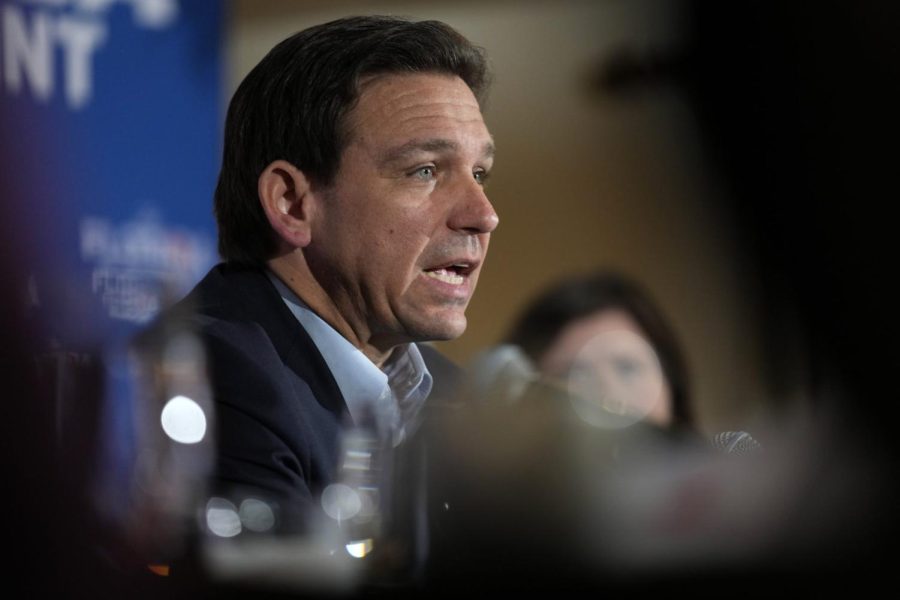In anticipation of the greatest change to the face of healthcare, the Department of Health and Human Services (HHS) released an address and a PSA to remind U.S. citizens that they need to purchase health insurance by 2014. Geared toward young adults, the videos feature HHS Secretary Kathleen Sebelius discussing how important it is to begin looking for healthcare options via the government-sponsored Health Insurance Marketplace.
This source, which is through HealthCare. gov and some individual state-sponsored sites, launches Oct. 1 and is intended to provide clear information in order for buyers to pick an appropriate plan based on prices and benefits.
The group that will be exploring this Marketplace the most are college students and other young adults. According to a report by HHS’s Office of the Assistant Secretary for Planning and Evaluation, people aged 19-34 are the most likely to be uninsured.
“Dealing with health insurance as a student can be really tricky,” Laura Etherton, Healthcare Policy Analyst for Illinois Public Interest Research Group (PIRG), said. “Right now, many students are uninsured or at risk of losing coverage soon – either by losing coverage under their parents’ plan when they turn 26 or by graduating and losing student coverage.”
Being young and healthy, health insurance does not seem like a first priority, especially since it can be expensive. Nevertheless, running the risk of not having insurance has always been a high one; an unexpected emergency and trip to the hospital could cost several hundred to several thousand dollars without insurance.
Starting in 2014, there will be an even greater expense to not having health insurance. Those without it will have to pay a penalty of $95 or 1 percent of their household income (whichever is greater). In 2016, the penalty will increase to $695 or 25 percent of income. Since the Affordable Care Act became law in 2010, insurance coverage for adults aged 19-25 has increased significantly. This is because it allows them to stay on their parents’ health insurance until they turn 26.
“The best deal for college students is to stay on their parents plan until age 26,” Grace Budrys, a sociology professor at DePaul, said. “There are virtually no restrictions. The person can live anyplace, can even be married (spouse is not covered), can be eligible for an employer plan and not enrolled. The parents’ premiums will not go up because of it.”
Those who are unable to stay on their parents’ health insurance plan can use the Health Insurance Marketplace to compare plans, apply for coverage and enroll. The state one lives in will determine which Health Insurance Marketplace he or she utilizes. Illinois residents, for example, can use the HealthCare.gov website.
“Which insurance companies are involved in each state depends on which apply and which are accepted,” Budrys said. “What kinds of plans they offer and how much they charge will vary by state. There are four plans available at different price levels that each state must offer.”
There is another option for young adults under the age of 30: “catastrophic” health plans. These policies allow three routine visits per year at no cost and offer preventive care benefits that all Marketplace plans must cover. These include numerous screenings and immunization vaccines.
If people covered by the catastrophic plan have already made three primary care visits and need to make additional ones, they will have to pay a high deductible. Therefore, buying a regular policy is a better option for those who have any kind of health problem, especially because the government will subsidize anyone above the poverty line (up to 400 percent). Also, starting in 2014, health insurance companies cannot refuse to cover someone or charge them more because of any pre-existing health conditions.
“In short, with the catastrophic plan, a person is gambling on not needing much healthcare but having it available in case of an accident or sudden onset of a serious illness,” Budrys said. “Most young people are healthy but poor, which explains why they are not eager to buy health insurance. But this plan is throwing the dice; some people are more risk- averse than others. If one already has some kind of illness, this is obviously not a good plan.”
People with limited income can be eligible for Medicaid. This provides a free or low- cost health plan that covers everything. Eligibility varies by state, but an applicant must be below the poverty line, which is currently $11,490 for a one-person household.
DePaul also offers its own Student Health Service to all enrolled students at a fee of $60 per quarter. While it is not primary medical insurance, the fee covers visits to the DePaul Student Health Service for diagnosis and treatment of certain minor health problems. Illnesses and injuries not covered by the service may be taken care of at a discounted cost.
“With the right facts and resources, we all can make intelligent and informed health insurance choices,” Etherton said.







